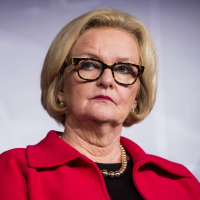U.S. Senator Seeks Investigations and Admissions of Wrongdoing in Future Whistleblower Reprisal Cases
 Sen. Claire McCaskill (photo: Bill Clark, Getty Images)
Sen. Claire McCaskill (photo: Bill Clark, Getty Images)
By Ron Nixon, New York Times
WASHINGTON — Sen. Claire McCaskill responding to what she has called troubling weaknesses in protections for whistleblowers, has asked federal agencies to provide information on senior managers who may have retaliated against employees who reported wrongdoing.
Her request was prompted by a statement in June from the Transportation Security Administration that said that despite a number of documented cases of such reprisals, neither the courts nor government agencies had confirmed whistleblower retaliation by any senior manager at the agency.
McCaskill, D-Mo., asked the agency about any disciplinary actions against managers after The New York Times reported that TSA employees had been reassigned, demoted, investigated or fired for reporting lapses or misconduct by senior leaders. She said that data from the Office of Special Counsel, an independent agency that protects federal employees from reprisal, showed that claims of retaliation by at least seven employees were substantiated.
The problem, McCaskill said, is that the Office of Special Counsel often negotiates settlements for whistleblowers instead of pursuing a full investigation, which allows the agency and the manager to avoid admitting wrongdoing. Such actions — similar to settlements by the Justice Department with big banks — could have a chilling effect on people who want to come forward to report serious public safety or national security concerns, she said.
“This has the potential to create a toxic work environment in which managers feel free to retaliate against legitimate whistleblowers knowing the case will be settled and their jobs will be safe,” she said.
McCaskill, who will be the top Democrat on the Senate Homeland Security Committee in the next Congress, gave the agencies until Dec. 30 to respond. She said she would use the information to explore options for fixing the problem, either through legislation, hearings or some other action.
Officials at the Office of Special Counsel said that once the office had found evidence of retaliation, its main priority was assisting the whistleblowers, perhaps by helping them get their jobs back.
“The system works best when agencies use our findings to both assist whistleblowers who wrongly were retaliated against and to discipline managers appropriately,” said Carolyn Lerner, who heads the office.
McCaskill said her request for information on retaliation by managers was prompted by cases like the one involving Robert MacLean, an air marshal who was fired by the TSA in 2006 after disclosing to an MSNBC reporter that the agency was planning to reduce the number of air marshals on overnight flights.
The TSA said the information MacLean had disclosed compromised aviation security.
He sued the agency, fighting his firing all the way to the Supreme Court. Last year, the justices ruled that his disclosures were not “specifically prohibited by law.”
MacLean has since been reinstated by the TSA, but he said he continued to face retaliation from senior managers, many of whom were responsible for his firing.
“But none of them have been punished,” he said. “I’m the one filing for bankruptcy because I had to defend myself all those years. I’m the one being assigned to entry-level positions that I’m overqualified for.”
MacLean said he had been denied salary increases and promotions. He added that for a time he was assigned to sit in a small office “and do nothing in the empty room.”
He has since been assigned to a TSA Visible Intermodal Prevention and Response, or VIPR, squad, an armed team that performs security sweeps to prevent terrorist attacks at transportation hubs. But he said it was not an assignment he had asked for.
Bruce Anderson, a spokesman for the TSA, said the agency took misconduct at any level seriously. He said he could not comment specifically on MacLean’s case because of litigation and investigations.
But he added, “MacLean’s assertions don’t accurately portray his assigned duties.”
To Learn More:
Whistleblowers’ Exposure of Wrongdoing Leads to Reform at Culpable Companies (by Gretchen Morgenson, New York Times)
Federal Agency In Charge of Protecting Whistleblowers Caught Punishing In-House Whistleblower (by Steve Straehley, AllGov)
Supreme Court Gives TSA Whistleblower another Victory (by Danny Biederman and Steve Straehley, AllGov)
Terrorists, Spies, Whistleblowers Treated the Same by Obama Administration (by Noel Brinkerhoff, AllGov)
- Top Stories
- Unusual News
- Where is the Money Going?
- Controversies
- U.S. and the World
- Appointments and Resignations
- Latest News
- Can Biden Murder Trump and Get Away With it?
- Electoral Advice for the Democratic and Republican Parties
- U.S. Ambassador to Greece: Who is George Tsunis?
- Henry Kissinger: A Pre-Obituary
- U.S. Ambassador to Belize: Who is Michelle Kwan?






Comments